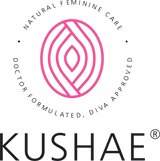Charity
Fighting Period poverty
FACT: Every day,more than 800 million people menstruate. The world must act to end period poverty and guarantee clean water and sanitation for all. Promoting menstrual equity is key to supporting women and young girls and the communities that rely on them.
What is Period Poverty?
Period Poverty refers to the inadequate access to menstrual hygiene resources, supplies and education, including but not limited to sanitary products, washing facilities, and waste management.
It is a global issue affecting women, girls, and people who menstruate who don’t have access to the safe, hygienic menstrual products they need, and/or who are unable to manage their periods with dignity, sometimes due to community stigma and superstitious beliefs.
What are the causes of Period Poverty?
Cause 1:In some cases, girls simply don’t have access to sanitary products.
Often, the cost of sanitary products for girls is simply too high, forcing them to skip school to tend to their periods. In some countries, like Malawi, sanitary pads can cost the equivalent of an entire day’s salary. In Kenya, two-thirds of women and girls can’t afford sanitary pads (theguardian.com).
Cause 2: In other cases, they face discrimination and stigma during their periods.
There are so many harmful stigmas and taboos associated with menstruation around the world, leaving girls with little to no information about puberty, and critically unprepared when they have their first period. This can be a very frightening, lonely and confusing time for a young woman.
All too often, women and young girls who menstruate are ostracized from basic activities, like eating certain foods, attending school or socializing. The cultural shame attached to menstruation and the inability to get safe menstrual products stop women from going to school and working every day.
Cause 3: In other cases, women and girls don’t have educational resources to inform them about safe, sanitary hygiene practices.
As a result of the inability to access and afford safe menstrual products, many women and girls around the globe are forced to manage their periods by reusing old sanitary products or managing their periods with unsafe materials like sawdust and dirty rags.

What are the consequences of period poverty?
Compromised Health - Poor menstrual hygiene can cause physical health risks and has been linked to reproductive and urinary tract infections, according to UNICEF.
Lack of Education - All across the globe, girls are less likely to graduate from secondary school than boys. In fact, according to UNESCO worldwide, 131 million girls are out of school — and 100 million of those are girls of high school age. And while there are many reasons for this, periods play a major role. UNICEF estimates that about 3 in 10 girls in South Africa miss school because of their periods each year. Girls around the globe can miss up to seven school days a month, or 63 days a year. This endangers girls with falling far behind in their education and eventually dropping out of school altogether.
Young girls who do not receive an education are more likely to enter child marriages and experience an early pregnancy, malnourishment, domestic violence, and pregnancy complications as a result.
Damaging Mental Health - Period shame has negative mental effects as well. It disempowers women, causing them to feel embarrassed about a normal biological process, as in many countries they are often ostracized and separated from their families and peers during their menstrual cycle.
Why is Kushae joining the fight to end period poverty?
We KNOW that keeping girls in school and ending the shame and stigma around periods is important for not only their own mental health, physical health, and well-being, but for the success of the entire community that they live in.
When a girl completes secondary school, she is less likely to be a victim of child marriage, face domestic abuse, and suffer from long-term health complications. As a result, educated women and girls are more likely to have fewer, healthier children. These children then, in turn, are more likely to get an education and pull themselves out of poverty.
JOIN Kushae in the fight to end Period Poverty. We are committed to providing the following resources to support and educate girls and women to end period poverty once and for all. Period.
Haiti - Providing “Dignity Kits” - reusable buckets, soap, hygiene products” to provide a sanitary solution for menstrual cycle needs
Jamaica - Providing “Kushae Kits” - free menstrual products and menstrual education resources
Sudan - Providing free menstrual products, menstrual education resources, and working with partnering organizations to empower local women to make reusable pads.

Kushae in the Community
It’s critical that we eradicate the shame and stigma around periods through education that reaches girls, their families, educators, and communities. This is our mission and commitment. We know the onset of puberty is often when girls feel especially low in confidence and self esteem. Our goal is to help them feel supported, and more importantly, empowered.
Together we have the power to help shape these young women into the independent, powerful, educated, assured people they deserve to be. Let’s do this...one school at a time.
Currently, we are supporting 12 middle schools across the country with education resources and period kit donations.














